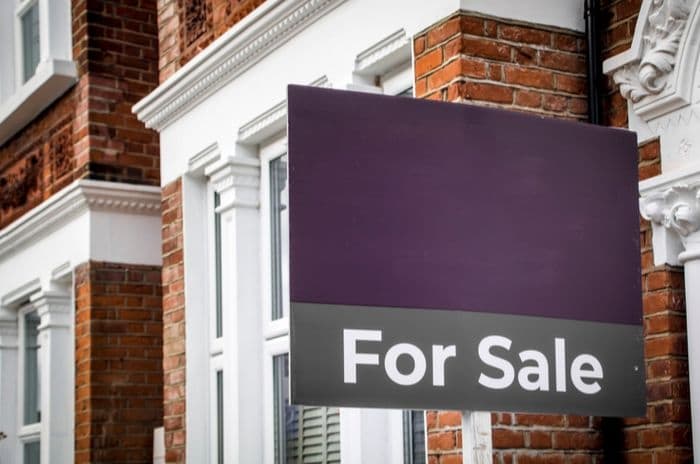Home > Money > News > Houses and the pound to struggle after election result
Houses and the pound to struggle after election result
THE pound fell sharply in response to the surprise result of Thursday's general election, dropping by 1.7% against the dollar to reach a new low of $1.27.

Coupled with a similar fall of 1.1% against the euro (to reach €1.13), such a dip highlights how the additional political uncertainty created by the election is likely to hit people's wallets, weakening spending power yet again for tourists and expats alike.
Yet having come barely a day after news that people were delaying house buying until after the election, the failure of the latter to produce a decisive, sustainable result will mean that house prices are likely to be unstable for at least the next few months.
And while this might seem good news for buyers looking to find a less expensive property, it's just as likely that sellers may hold off parting ways with their homes, thereby keeping supply low and prices more or less the same.
'Wait and see'
Supermarkets add extra £22,000 to homes
Price gap reveals London bias
Homes 'failing' because of high prices
For the past few months, the growth in house prices has been slowing fairly dramatically, with last year's double-digit figures of annual growth shrinking to the 3.8% of March.
Similarly, quarterly figures in May revealed an actual reversal of growth for the first time since November 2012, with prices dropping by 0.2% between February and April.
And it's into such an unfavourable picture that the snap general election enters, with a survey published on June 8th by the Royal Institution of Chartered Surveyors (RICS) suggesting that the election was causing buyers and sellers to "wait and see".
Having taken a survey of their members, RICS noted a "fall in agreed sales", a "decline in fresh listings", a fall in buyer enquiries, and a slip in near-term price expectations from 5% to -1%.
As a whole, they explained such declines in terms of buyers and sellers waiting until after the election to act, in the assumption that this election would produce a clear result and create a "strong and stable" Government.
Adverse impact
Of course, as we now know, the snap election didn't quite have the desired effect and, in its aftermath, RISC's comment that it was "having an adverse impact on demand" becomes somewhat prophetic with regards to the next few months or the next year.
That's because the fragility of a minority Government makes another General Election in the not-too distant future likelier than usual. In fact, another election would be necessary in the event that a vote of no confidence in the Government were passed by MPs.
Although much depends on how events unfold in Westminster in the next few weeks, it's therefore possible that the threat or prospect of another election will continue hanging over the UK for the foreseeable future.
And in turn, this may continue having much the same "adverse impact" on the housing market, with sellers waiting until after a stronger Government is produced to put their homes up for sale.
If supply is further restricted like this, then prices may simply hover more or less where they are now. However, if at the same time there's a bigger contraction of demand from potential buyers, then prices will likely continue shrinking until the situation improves.
As said Nick Leeming of Jackson-Stops Estate Agents said, "The UK was promised a period of stability but today's announcement provides anything but at this stage. All markets abhor uncertainty and the housing market is no exception".
A softer Brexit?
In a similar manner to Brexit, it's perhaps too easy to read unfortunate economic implications into a hung parliament, yet there are other potential consequences for the public's finances beyond a struggling housing market.
For one, there's the continued stagnation of the pound, which would be good for Brits earning in foreign currencies but bad for inflation and bad for anyone already feeling pinched by the cost of living.
Yet there's also the likelihood that, because of increased "uncertainty" and its role in causing people to cut back on spending, the Bank of England will continue holding off from raising interest rates above 0.25% for the time being, thereby keeping the cost of borrowing relatively low.
However, if the minority Government do manage to survive longer than some are predicting, and if they do manage to lead Brexit negotiations, then their decreased power and authority may mean that Brexit ends up being softer than the Prime Minister had intended prior to the election.
And in turn, this would most likely mean more trade with the EU, a stronger economy, a stronger pound, better interest rates for savers, and more spending power for the UK population.
Yet sadly, the uncertainty of the election result and the seeming instability of the Government to emerge from it means precisely that such predictions can be made with next to no assurance.
As RISC said in their report, people will therefore have to "wait and see", which maybe proves why the UK's personal finances might be squeezed a little more than usual in the coming months.
Receive consumer updates that matter in our newsletter
Receive consumer updates that matter in our newsletter

We are independent of all of the products and services we compare.

We order our comparison tables by price or feature and never by referral revenue.

We donate at least 5% of our profits to charity, and we aim to be climate positive.
Latest News

26 October 2022
Cost of living showing worrying trends in affordability
16 June 2022
FCA warn lenders on cost of living difficulties


